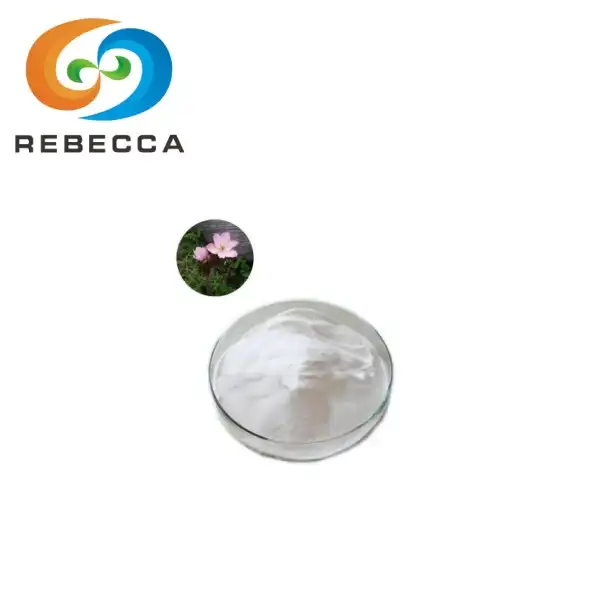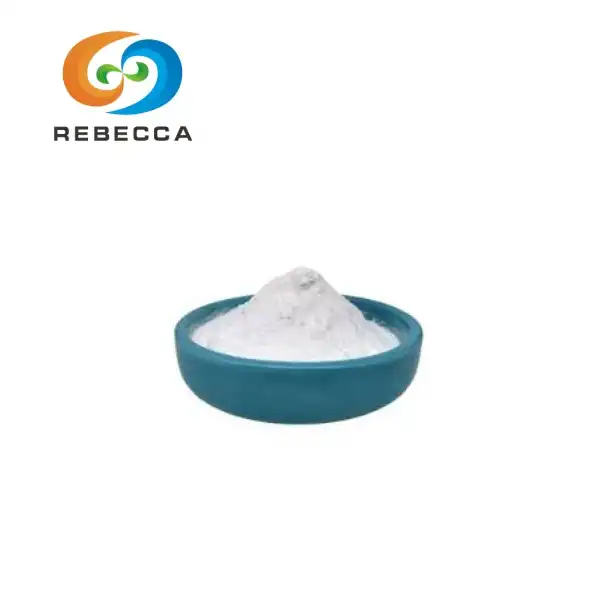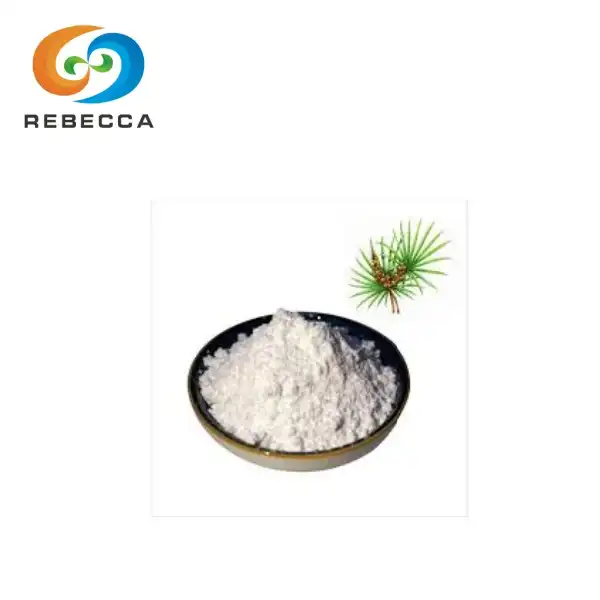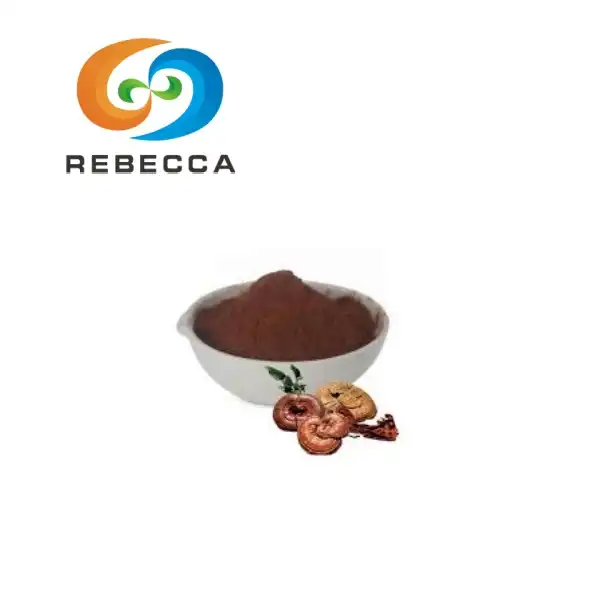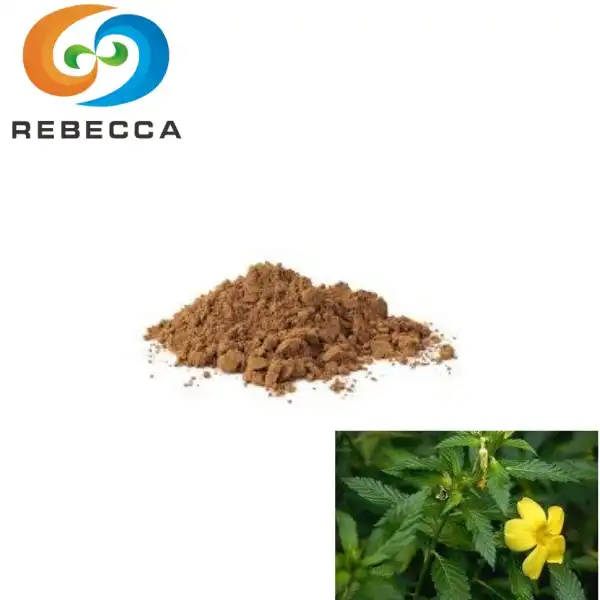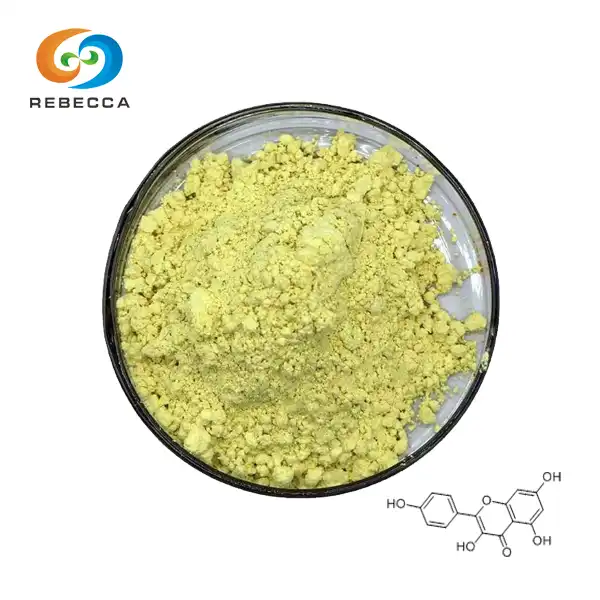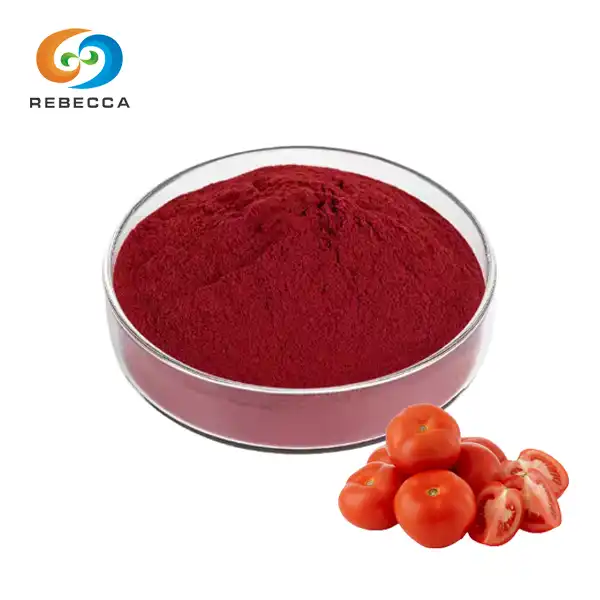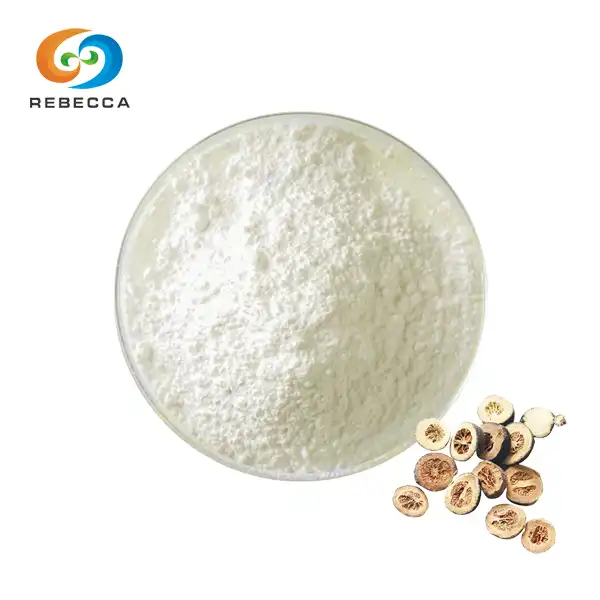Can fucoxanthin help with skin conditions like hyperpigmentation?
Fucoxanthin, a potent carotenoid found in brown seaweed, has garnered significant attention in the skincare industry for its potential benefits in addressing various skin concerns, including hyperpigmentation. This powerful compound, available as fucoxanthin powder, offers a natural approach to improving skin health and appearance. In this comprehensive guide, we'll explore the remarkable properties of fucoxanthin and its potential to help with skin conditions like hyperpigmentation.
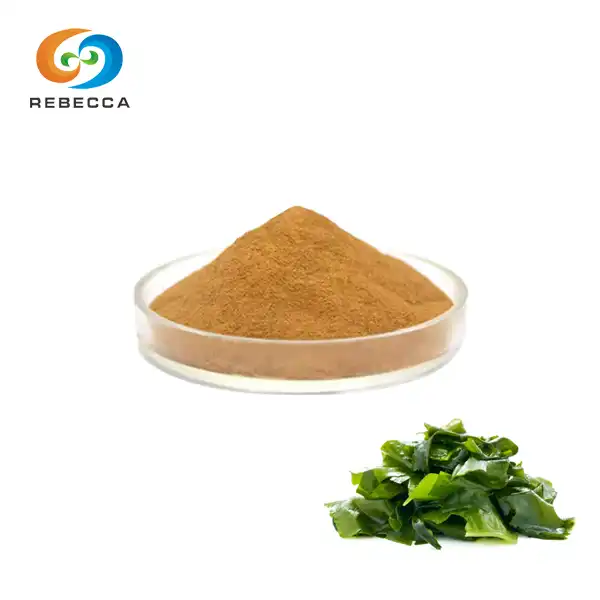
English name: Fucoxanthin
Molecular formula: C42H58O6
CAS number: 3351-86-8
Specification]: 5% 10% 20% 30% 40% 50%Appearance: Usually crystalline powder or oily substance, light yellow to brown in color
Solubility: Insoluble in water, easily soluble in organic solvents such as ethanol
Physiological functions: Has multiple pharmacological effects such as anti-tumor, anti-inflammatory, antioxidant, weight loss, and nerve cell protection
Application: Widely used in the market of medicines, skin care and beauty products, and health products
Fucoxanthin Powder Benefits for Skin Health
Fucoxanthin powder, derived from brown algae, boasts an impressive array of benefits for skin health. Its unique molecular structure allows it to penetrate the skin effectively, delivering potent antioxidant and anti-inflammatory properties that contribute to overall skin wellness.
Antioxidant Protection
One of the primary benefits of fucoxanthin powder for skin health is its powerful antioxidant activity. As an antioxidant, fucoxanthin helps neutralize harmful free radicals that can damage skin cells and accelerate the aging process. By incorporating it into skincare routines, individuals may experience enhanced protection against environmental stressors and oxidative stress.
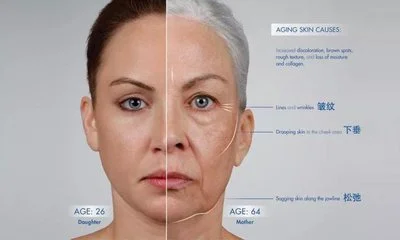
Anti-Inflammatory Properties
Inflammation is a common underlying factor in many skin conditions, including acne, rosacea, and eczema. Fucoxanthin powder exhibits remarkable anti-inflammatory properties, which may help soothe irritated skin and reduce redness. This anti-inflammatory action makes fucoxanthin a promising ingredient for those struggling with sensitive or reactive skin types.

Collagen Production Support
Collagen is essential for maintaining skin elasticity and firmness. Fucoxanthin powder has been shown to support collagen production in the skin, potentially helping to improve skin texture and reduce the appearance of fine lines and wrinkles. By promoting collagen synthesis, fucoxanthin may contribute to a more youthful and radiant complexion.

UV Protection
While not a substitute for sunscreen, fucoxanthin powder has demonstrated some UV-protective properties. This added layer of defense against sun damage can be particularly beneficial in combating premature aging and maintaining overall skin health. When used in conjunction with proper sun protection measures, fucoxanthin may help mitigate the harmful effects of UV radiation on the skin.

How Fucoxanthin Helps Reduce Hyperpigmentation?
Hyperpigmentation, characterized by dark patches or spots on the skin, is a common concern for many individuals. Fucoxanthin powder shows promise in addressing this issue through various mechanisms of action.
Tyrosinase Inhibition
Fucoxanthin powder has been found to inhibit tyrosinase, an enzyme crucial in melanin production. By suppressing tyrosinase activity, fucoxanthin may help prevent the overproduction of melanin, which is responsible for dark spots and uneven skin tone. This inhibitory effect makes it a potential natural alternative for those seeking to address hyperpigmentation concerns.
Melanin Dispersion
In addition to inhibiting melanin production, fucoxanthin powder may also assist in the dispersion of existing melanin clusters. This action can lead to a more even distribution of pigment throughout the skin, potentially reducing the appearance of dark spots and creating a more uniform complexion.
Cellular Turnover Enhancement
Fucoxanthin powder has been shown to promote cellular turnover, which is the process by which old skin cells are replaced by new ones. By accelerating this natural renewal process, fucoxanthin may help fade existing hyperpigmentation more quickly, revealing fresher, more evenly toned skin beneath.
Antioxidant Protection Against Pigmentation Triggers
Many factors can trigger or exacerbate hyperpigmentation, including UV exposure and environmental pollutants. The potent antioxidant properties of fucoxanthin powder provide protection against these external aggressors, potentially preventing the formation of new dark spots and helping to maintain a more even skin tone over time.
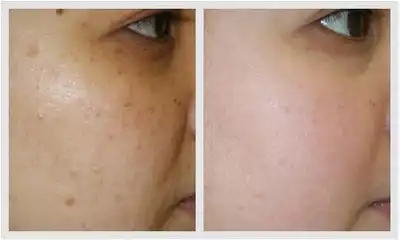
Using Fucoxanthin Powder for Glowing Skin
Incorporating fucoxanthin powder into your skincare routine can be an effective way to achieve a glowing, radiant complexion. Here are some practical tips for using this powerful ingredient to enhance your skin's natural beauty.
Topical Application Methods
Fucoxanthin powder can be incorporated into various skincare products for topical application. Some popular methods include:
- Serums: Mix fucoxanthin powder with a hyaluronic acid serum for enhanced penetration and hydration.
- Creams: Blend fucoxanthin powder into your favorite moisturizer for an antioxidant boost.
- Masks: Create a custom face mask by combining fucoxanthin powder with clay or other natural ingredients.
When applying products containing fucoxanthin powder, gently massage them into clean, damp skin for optimal absorption.
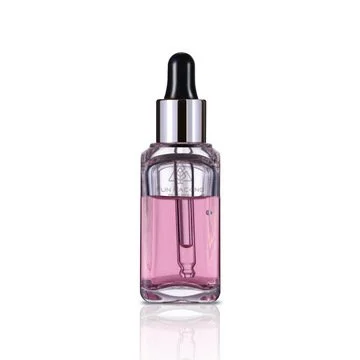
Dietary Incorporation
While topical application is effective, consuming fucoxanthin-rich foods or supplements can also contribute to skin health from within. Consider adding brown seaweed to your diet or consulting with a healthcare professional about fucoxanthin supplements to support your skin's radiance from the inside out.
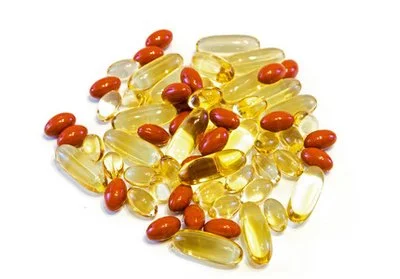
Complementary Ingredients
To maximize the benefits of fucoxanthin powder, consider combining it with other skin-loving ingredients. Vitamin C, niacinamide, and other antioxidants can work synergistically with fucoxanthin to enhance its effects on hyperpigmentation and overall skin health. Always perform a patch test when introducing new products or combinations to ensure compatibility with your skin.
Sun Protection
While fucoxanthin powder offers some UV-protective properties, it's crucial to maintain a comprehensive sun protection routine. Use a broad-spectrum sunscreen daily and reapply as needed, especially when using products containing fucoxanthin powder, to prevent further hyperpigmentation and protect your skin from sun damage.

Conclusion
Fucoxanthin powder presents a promising natural solution for addressing hyperpigmentation and promoting overall skin health. Its multifaceted benefits, including antioxidant protection, tyrosinase inhibition, and support for cellular turnover, make it a valuable addition to skincare routines. By incorporating it into topical products and considering dietary sources, individuals can harness its potential to achieve a more even, radiant complexion. As with any skincare approach, consistency and patience are key to realizing the full benefits of this remarkable compound.
At Shaanxi Rebecca Biotechnology Co., Ltd., we are committed to providing high-quality product and other natural herbal extracts to meet the growing demand for effective, plant-based skincare solutions. As a trusted fucoxanthin powder factory, we ensure strict quality control, advanced extraction technology, and reliable supply to deliver products that meet global standards. Our dedication to excellence makes us a dependable partner for innovative skincare and health applications.
Our advanced production processes, including high-temperature drying and ultra-fine grinding, ensure that our fucoxanthin powder retains its natural potency and bioavailability. Whether you're a skincare formulator looking to create innovative products or an individual seeking to enhance your personal care routine, our premium product can help you achieve your skin health goals. For more information about our fucoxanthin powder and other natural extracts, please contact us at information@sxrebecca.com.
FAQ
Is fucoxanthin powder safe for all skin types?
Fucoxanthin powder is generally well-tolerated by most skin types. However, as with any new skincare ingredient, it's advisable to perform a patch test before full application.
How long does it take to see results when using fucoxanthin powder for hyperpigmentation?
Results can vary, but many users report seeing improvements in skin tone and texture within 4-8 weeks of consistent use.
Can fucoxanthin powder be used during pregnancy?
While fucoxanthin is natural, it's best to consult with a healthcare provider before using any new skincare products during pregnancy.
Is fucoxanthin powder suitable for vegans?
Yes, fucoxanthin powder derived from brown seaweed is suitable for vegans and vegetarians.
Can fucoxanthin powder be used in combination with other skincare actives?
Fucoxanthin powder can be combined with many other skincare ingredients. However, it's always best to introduce new combinations gradually and monitor your skin's response.
References
1. Maeda, H., Hosokawa, M., Sashima, T., Funayama, K., & Miyashita, K. (2005). Fucoxanthin from edible seaweed, Undaria pinnatifida, shows antiobesity effect through UCP1 expression in white adipose tissues. Biochemical and Biophysical Research Communications, 332(2), 392-397.
2. Shimoda, H., Tanaka, J., Shan, S. J., & Maoka, T. (2010). Anti-pigmentary activity of fucoxanthin and its influence on skin mRNA expression of melanogenic molecules. Journal of Pharmacy and Pharmacology, 62(9), 1137-1145.
3. Urikura, I., Sugawara, T., & Hirata, T. (2011). Protective effect of fucoxanthin against UVB-induced skin photoaging in hairless mice. Bioscience, Biotechnology, and Biochemistry, 75(4), 757-760.
4. Heo, S. J., & Jeon, Y. J. (2009). Protective effect of fucoxanthin isolated from Sargassum siliquastrum on UV-B induced cell damage. Journal of Photochemistry and Photobiology B: Biology, 95(2), 101-107.
5. Zheng, J., Piao, M. J., Keum, Y. S., Kim, H. S., & Hyun, J. W. (2013). Fucoxanthin protects cultured human keratinocytes against oxidative stress by blocking free radicals and inhibiting apoptosis. Biomolecules & Therapeutics, 21(4), 270-276.
_1730691017423.webp)










